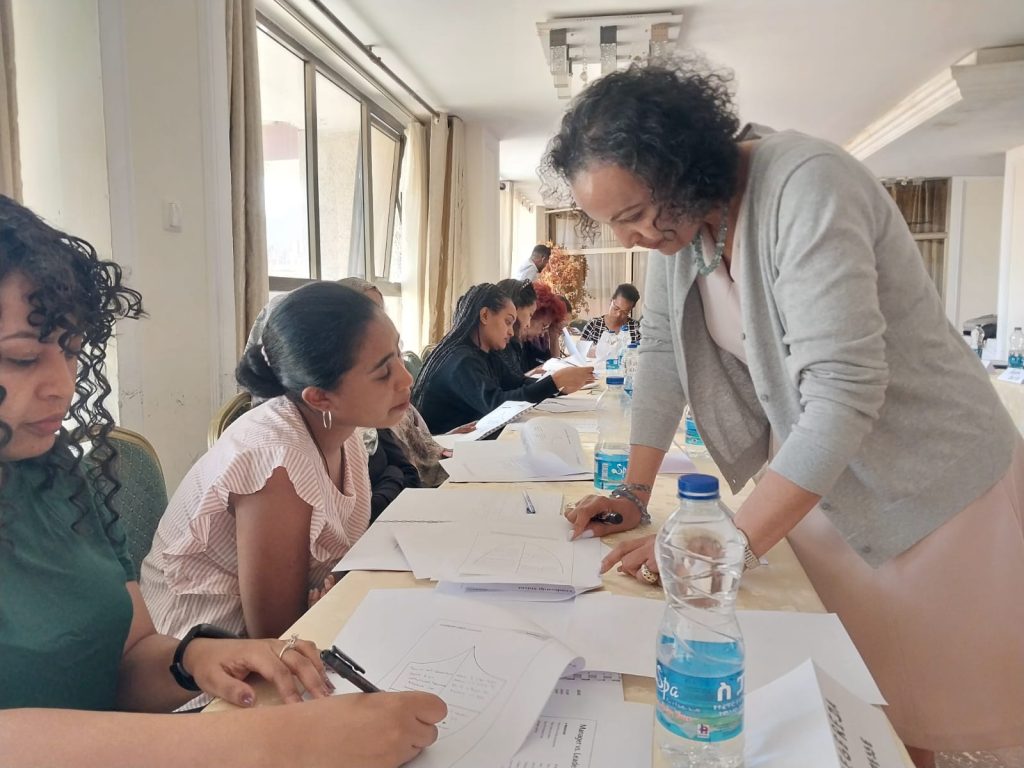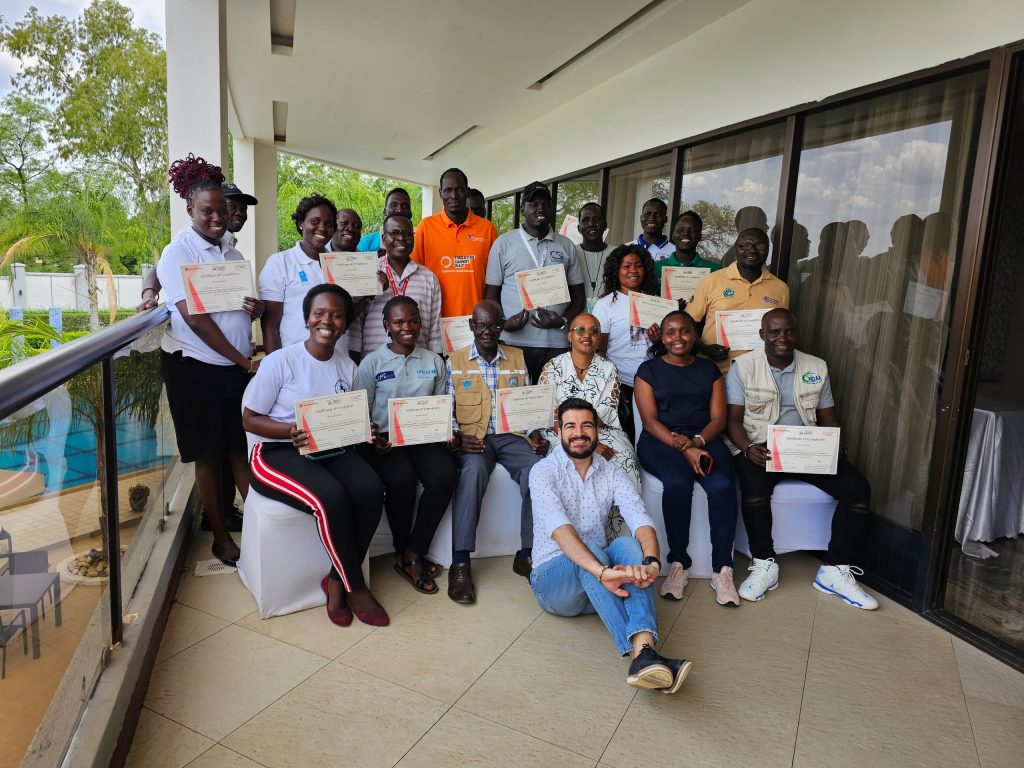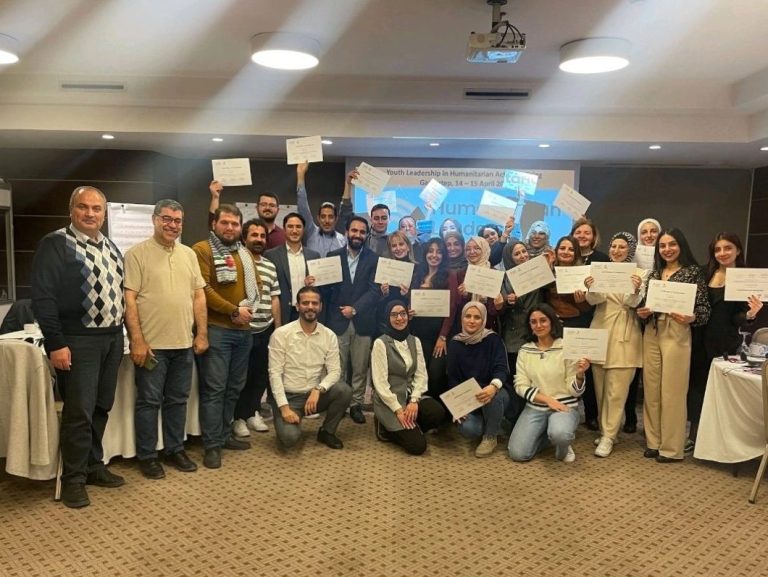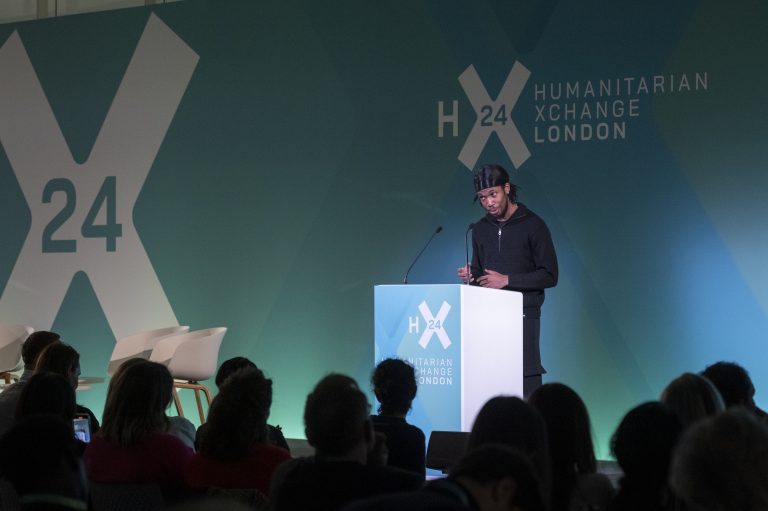Having delivered a series of trainings in 2023 to strengthen community resilience, the first quarter of 2024 was remarkably busy in East and Southern Africa with trainings covering HLA’s strategic pillars (community resilience, technical expertise and leadership) from Tanzania to Sudan.
Our tireless colleagues delivered high quality trainings to strengthen the capacity of over 70 humanitarians at various stages of their humanitarian careers. Humanitarians who are responding to crises such as supporting efforts in refugee settlements, disaster relief, and humanitarians working in conflict settings.
Localised leadership – Tigray, Ethiopia | Zimbabwe | Malawi | South Africa | Kenya | Tanzania

The HLA ESA team working in line with one of HLA strategic pillars, which to strengthen local leadership collaborated with Save the Children Ethiopia to deliver training on Leadership Skills for Women. 17 women – humanitarian and development leaders from Tigray region, took part and it was delivered in Amharic and English.
Sisay Dejene, Head of Localisation and Partnerships in Save the Children International – Ethiopia said:
“Save the Children is purposefully engaging with local civil society organisations (CSOs) in Tigray that are facing challenges in delivering for children. We are committed to enhancing their capacity in leadership and other crucial areas.”
For most participants, this is their first time in any leadership training. The training pondered on identity, value, and challenges of women leaders of Ethiopia. Participants acquired and practised using tools for self-awareness and leadership.
A participant said: “Before this training, most of us have just been on survival mode because of the conflict. We have not had time to reflect on what our position in life is, what we can offer or what we stand for. This course is giving us an opportunity to do that and reflect on strengths we have and how we can use that to make positive change.”
Another participant shared: “This has been very enlightening for me.
We need more of this. We need coaches to help us to do more and learn more. We need a lot of encouragement in leadership.
We have left behind many other people who need this kind of training and I feel very privileged, and it is a dream to be invited to learn. Thank you for organising this for us”.
“For me, it has been a lot. We are going through healing so there is a lot to process. A lot to think about. “
This experience was mutually beneficial as the delivery team received first-hand insight from the unique position and skillset of participants.
Janet Nyaoro, HLA ESA Lead said: “Listening to the participants, I think they have unique perspective as resilient people who are grateful to experience a post conflict era. Their voices speak volumes on the need for more resources and need to adopt learning models that will allow HLA to reach out to more people who work in far flung regions who are yearning to learn leadership and other skills.”
Strengthening technical expertise – South Sudan | Uganda
In March, the team partnered with South Sudanese Universal Network for Knowledge and Empowerment Agency (UNKEA) a local NGO, UNICEF and Save the Children to deliver an Education in Emergencies (EiE) Fundamentals course in Juba, South Sudan.
20 humanitarians from the Education cluster in South Sudan – from national non-governmental organisations and two representatives from an international non-governmental organisation attended the five-day training.

EiE Fundamentals aims to equip country office education and EiE staff with the fundamental competencies to be part of initiating, designing and implementing a quality EiE response in their context.
A representative from a national NGO who participated in the EiE training expressed gratitude for the training, saying: “I recommend the cluster to coordinate and organise professional development programme training yearly to help incoming educationist in South Sudan to build back better.”
Likewise in Uganda, a Humanitarian Operations Programme (HOP) Core training programme took place, reaching 41 participants including representatives from Near Network, local partners, and Save the Children International – Uganda.
Sarah Basemera, Team Lead for Raising Gabdho Foundation (RGF) shared profound insights on her engagement with the training and HLA’s platforms. She said: “Having participated in the transformative humanitarian training led by the Humanitarian Learning Academy in collaboration with the Save the Children team in Uganda, I am deeply moved to express my heartfelt appreciation for their remarkable work. The existence of such an academy, dedicated to empowering humanitarian actors at no cost, represents a remarkable opportunity. Their commitment to providing ongoing support even after the training demonstrates a clear intention to bolster smaller organisations, a gesture that is truly commendable.
“The revelation of the Kaya platform offering a multitude of free courses tailored for humanitarian actors struck a chord with me. This invaluable resource serves as a lifeline for humanitarian organisations, particularly local actors who grapple with the financial strain of hiring seasoned professionals or consultants for capacity building. It embodies inclusivity and the democratisation of knowledge, essential elements for fostering sustainable change within communities.”
Speaking to fellow humanitarians, Sarah said:
“In the spirit of localisation, let us seize this moment to amplify our efforts, optimise our resources, and uphold the highest standards of humanitarian practice. Together, let us chart a course towards a more just and compassionate world, ensuring that no community is left behind.”
The second quarter of 2024 is well underway with the team providing transformative support to Save the Children country offices across the region as well as to local networks and organisations.
One year of conflict in Sudan
April 15th marked one year since the conflict broke out in Sudan and has triggered a regional refugee crisis with 9 million people internally displaced and 1.5 million people seeking refuge in neighbouring countries across East and Southern Africa (ESA).
The HLA’s ESA team continues to support those affected by the crisis and humanitarians working through the difficult situation. Humanitarians in and around Sudan can access a free Response Learning Hub for resources specifically tailored to support country offices and partners in the refugee crisis: The Sudan Response | Response Learning Hub


